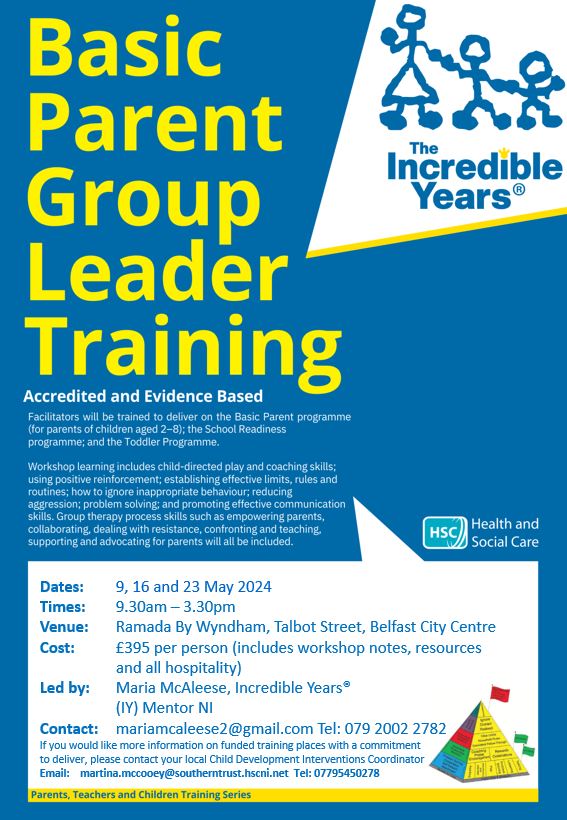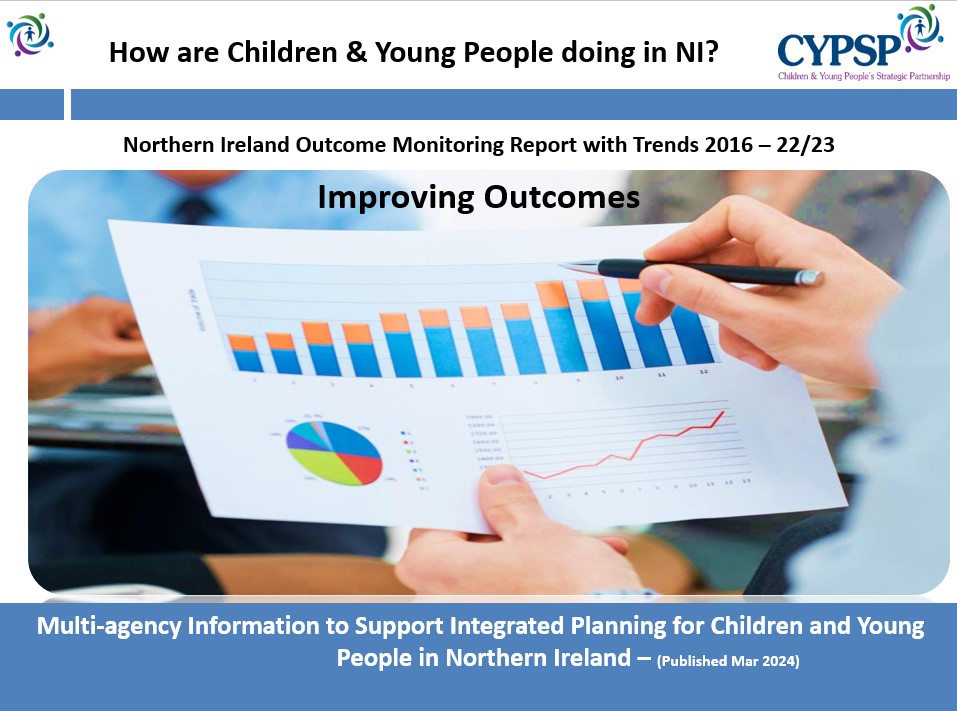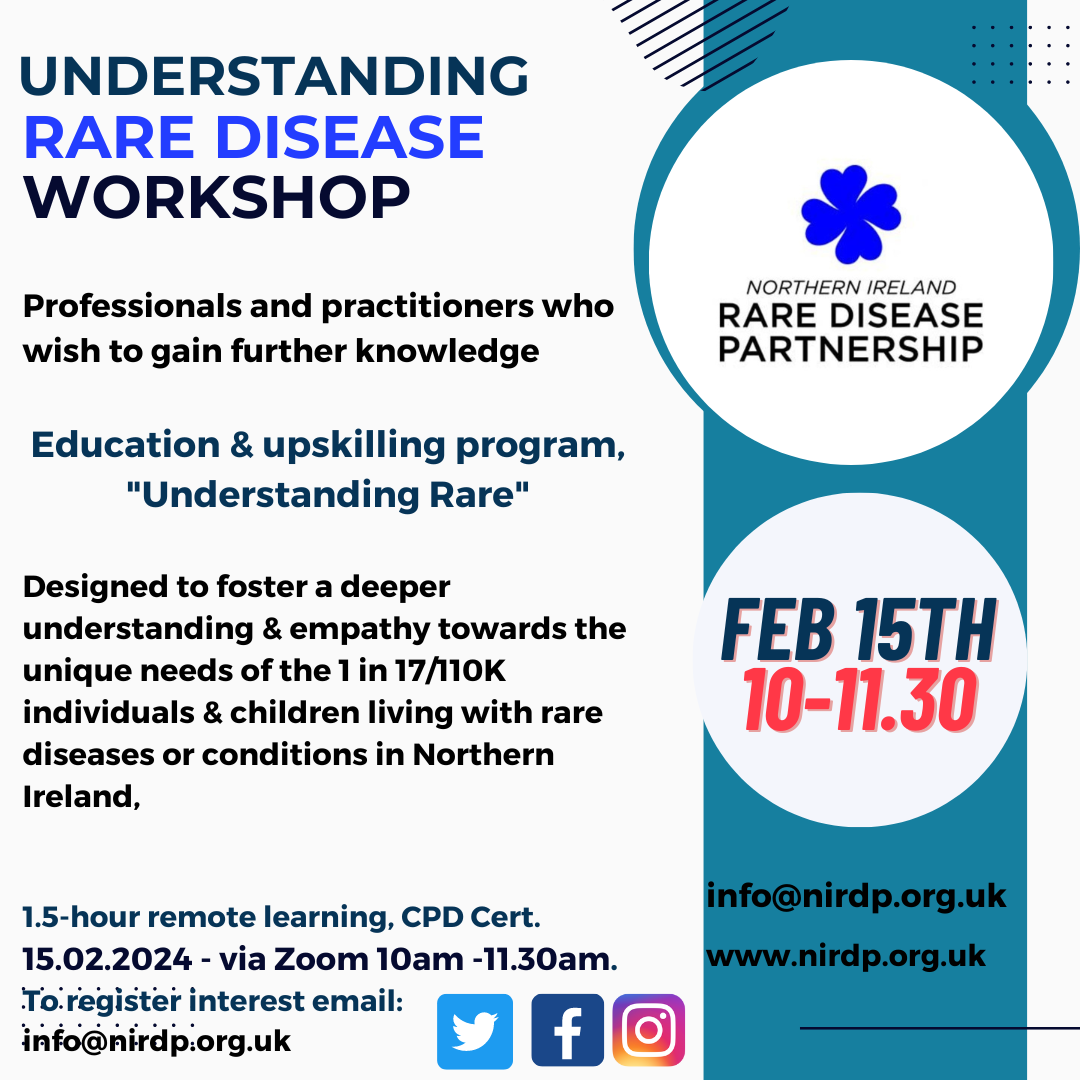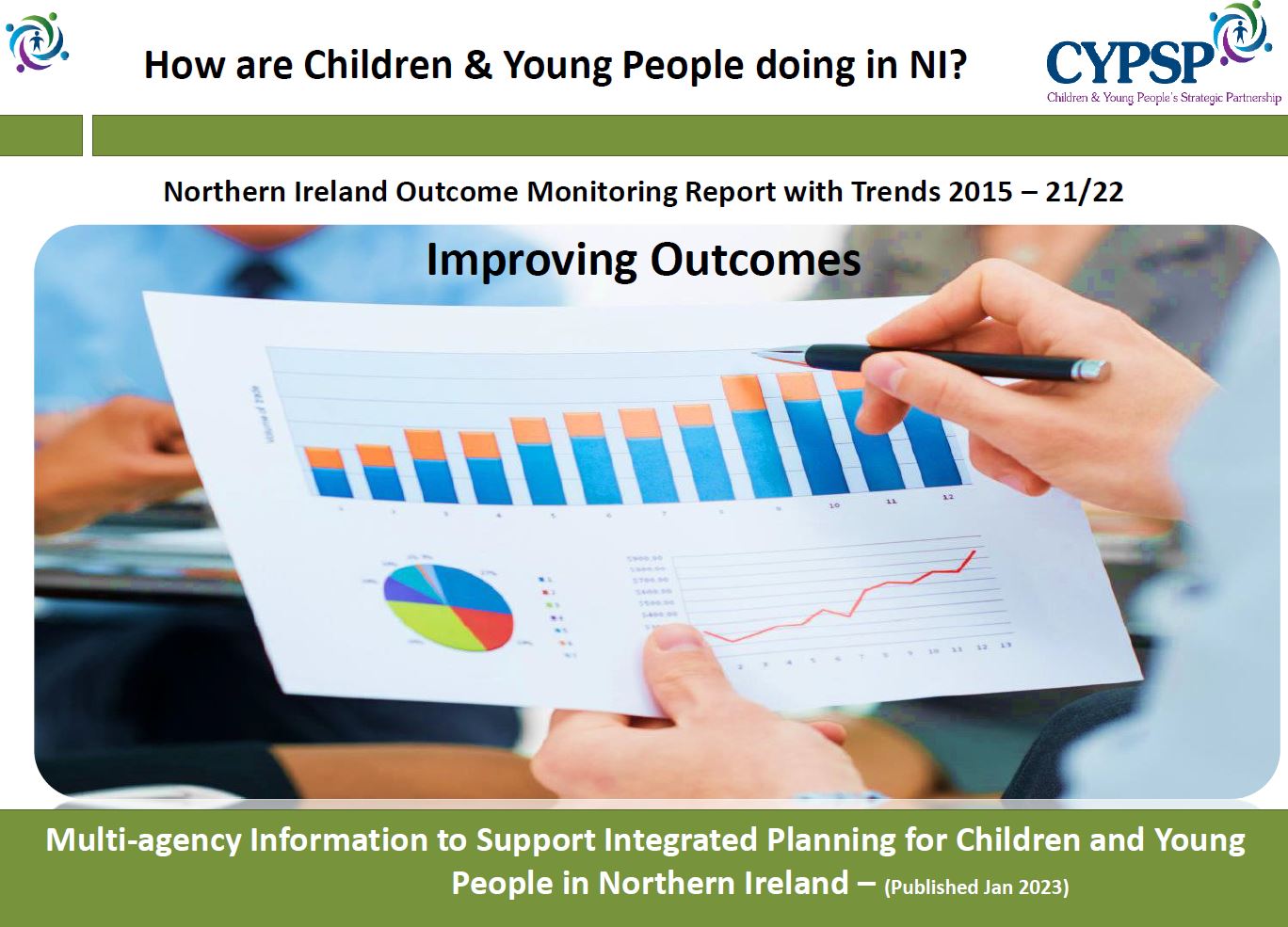This information is for the ‘Basic’ Parent Group Leader Training. Participants will be trained to deliver any one of three programmes: the Basic Parent program (for parents of children aged 2 – 8); the School Readiness programme; and the Toddler Programme [The ‘home coaching’ manual can also be utilised by group leaders if delivering the 1:1 home coaching programme].
The workshop for the Incredible Years® Basic Parent Group Leader Training (to cover toddlers, preschool and school aged children from 2 years up to age 8) is an accredited training which is three full days. The programme is designed to promote positive strategies and to assist parents in managing children’s behaviour problems. This intervention programme is used by various professionals (therapists and parent educators from psychology, social work, teaching and education, nursing and psychiatry) who work with families of young children.
The programme topics include: play; helping children learn; using positive reinforcement; effective limit setting including establishing effective rules and routines; how to ignore inappropriate behaviour; and using the Time Out approach as a non-violent discipline approach; problem solving; effective communication skills; and supporting children’s education. Group therapy process skills for group leaders such as empowering parents, collaborating, dealing with resistance, confronting and teaching, supporting and advocating for parents will all be covered. Participants will learn effective parent group leader skills and feel confident to deliver the programme to parents thereafter.
Led By: Maria McAleese, Incredible Years® (IY) Mentor NI
Contact: mariamcaleese2@gmail.com
Tel: 07920022782




